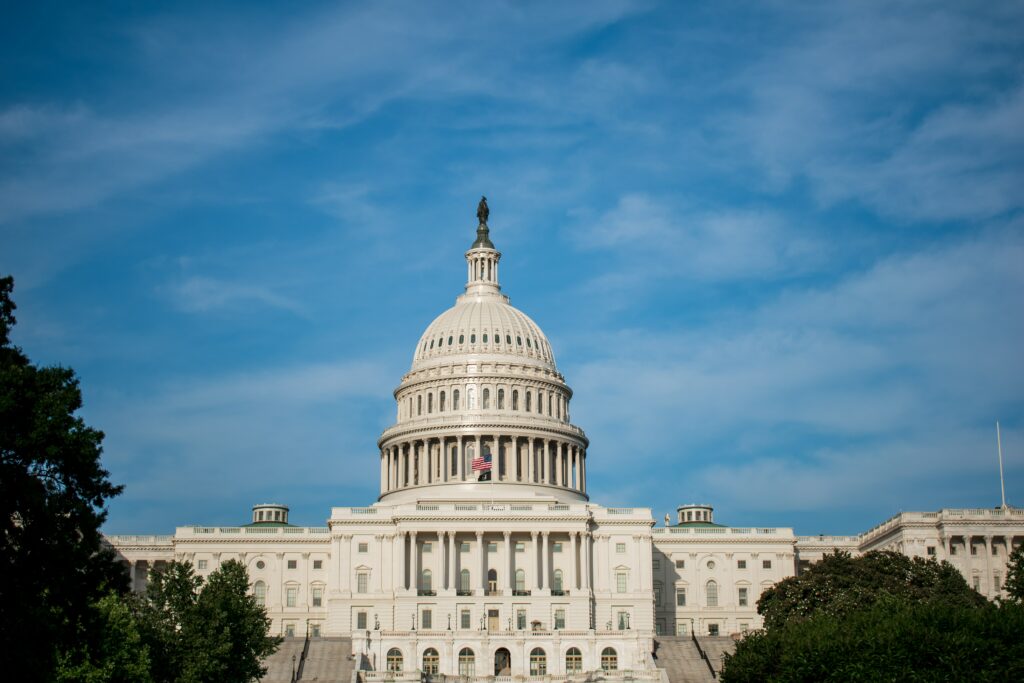
Last week saw a flurry of news about the Journalism Competition and Preservation Act (“JCPA”), proposed legislation that would create an exemption to antitrust law that would allow certain news publishers to join together to collectively negotiate with digital platforms to negotiate payments for carrying their content. Authors Alliance has consistently opposed the JCPA, as we believe it would harm small publishers and creators, while further entrenching major players in the news media industry.
Last Monday, December 5th, it was uncovered that the revised JCPA had been included in a “must pass” defense spending bill (the National Defense Authorization Act, or NDAA), leading the legislation’s opposition to promptly decry the move and caution against it. Then, the next day, news broke that Congress had removed the JCPA from the legislation—something to celebrate for those, like Authors Alliance, who believed this was ill-advised legislation that would not have served the interests of the creators who contribute to the news media.
Background
The JCPA was first proposed as separate bills in the Senate and House of Representatives in March 2021. The JCPA has laudable goals: to preserve a strong, diverse, and independent press, responding to ongoing crises in local and national journalism. But the actual text of the JCPA doesn’t meet those goals, while causing other problems. One major problem has been that the JCPA implicitly expands the scope of copyright, and would potentially require payment for activities like linking or using brief snippets of content that are not only fair uses, but are crucial for digital scholarship. In June 2021, Authors Alliance joined a group of like-minded civil society organizations on a letter urging Congress to clarify that the bill would not expand copyright protection to article links, and that authors and other internet users would not have to pay to link to articles or for the use of headlines and other snippets that fall within fair use.
Then, this September, a new version of the bill was released in the Senate. While the revised language made some improvements—like clarifying that the bill would not modify, expand, or alter the rights guaranteed under copyright—it still failed to clarify that the bill would not cover activities like linking that are fundamental for authors creating digital scholarship. And some changes to the legislation posed serious First Amendment concerns. For example, new language in the bill would have forced platforms to carry content of digital journalism organizations that participated in the collective bargaining, regardless of extreme views or misinformation. The revised bill could also have hurt authors of news articles financially, because it failed to include a provision that would require authors of the press articles to be compensated as part of the collective bargaining it envisioned.
Inclusion in the NDAA
Last week, the news that the JCPA had been included in the NDAA was met with outcry. Its opponents argued that the bill was far too complex to be included in must-pass legislation, and merited further discussion and revision before becoming law. The JCPA was never marked up in the House of Representatives, nor did it receive a hearing there. Authors Alliance once again joined 26 other civil society organizations on a letter protesting the move and urging Congress not to include the JCPAA in military spending or other must-pass legislation.
A wide variety of other stakeholders also objected to the inclusion of the JCPA in the NDAA. Small publications, lobbyists for platforms, and even journalism trade groups reiterated their opposition. Meta, the company that owns Facebook, even threatened to remove news from their platform were the legislation to pass (in response to a similar bill being passed in Australia, Meta did in fact remove news from its platform in the country). Then, late on Tuesday, December 6th, the latest version of the bill’s text was released, with the JCPA omitted. The NDAA was approved by the House a few days later.
A Victory for Now
Because the JCPA was removed from the NDAA before its passage, it is no longer on the brink of becoming law. What happens next with the JCPA is less certain. There have already been multiple iterations of the bill, and it could be reintroduced, with or without modifications, at the next legislative session. While it’s unclear how the new makeup of Congress following the midterm elections might affect the JCPA’s chance of becoming law, this is certainly a factor in the bill’s future. This was also not the first time that the government has attempted to support journalism and local news through proposals that could affect users’ and authors’ ability to rely on fair use. Just last year, the Copyright Office conducted a study on establishing a new press publishers’ right in the United States which would have required news aggregators to pay licensing fees as part of their aggregation of headlines, ledes, and short phrases of news articles (you can read about Authors Alliance’s reply comment in that study here), activities. While the Office ultimately decided not to recommend the adoption of a new press publisher’s right, its study shows that the government may continue to investigate these policies from other fronts.
Discover more from Authors Alliance
Subscribe to get the latest posts sent to your email.
